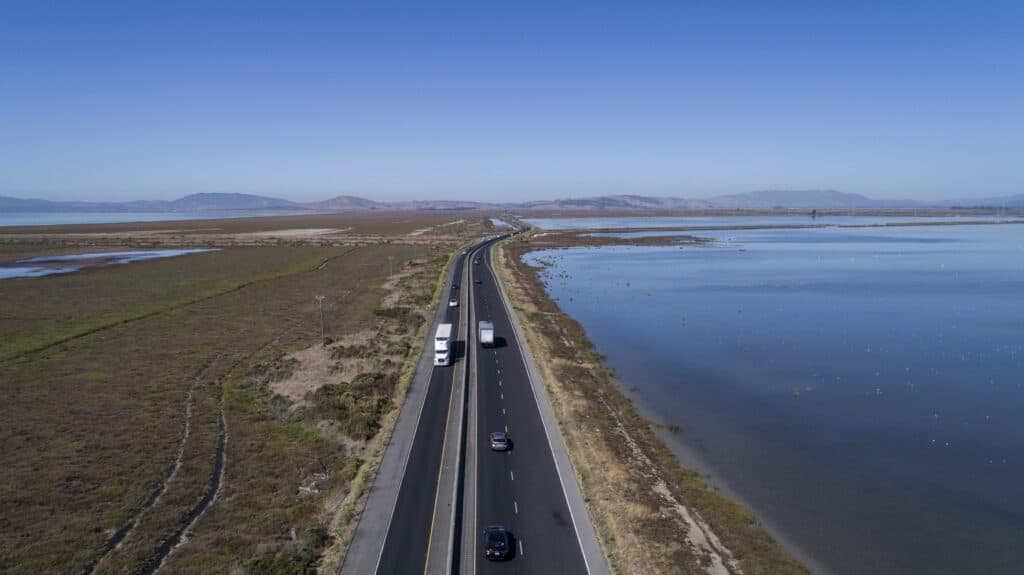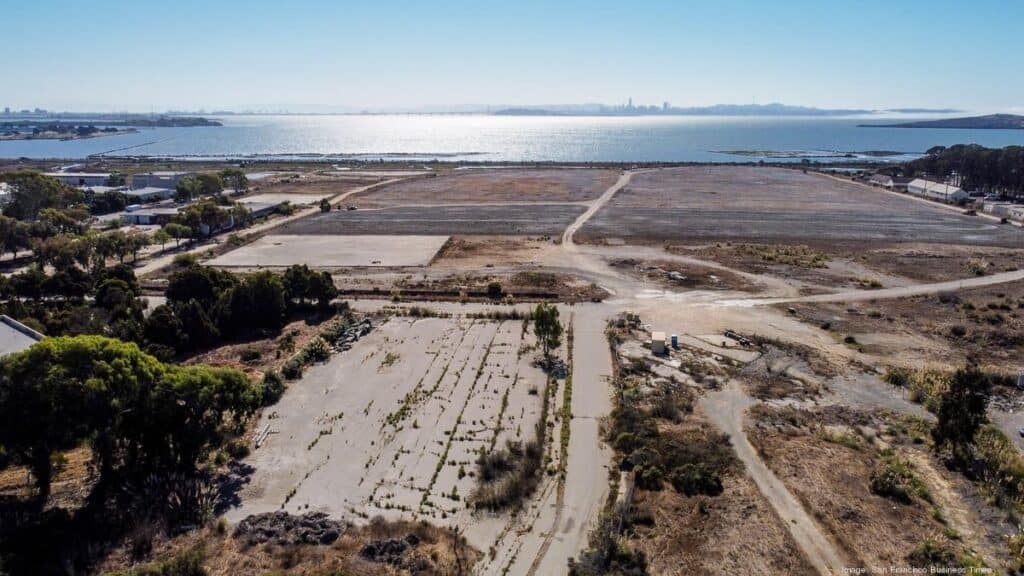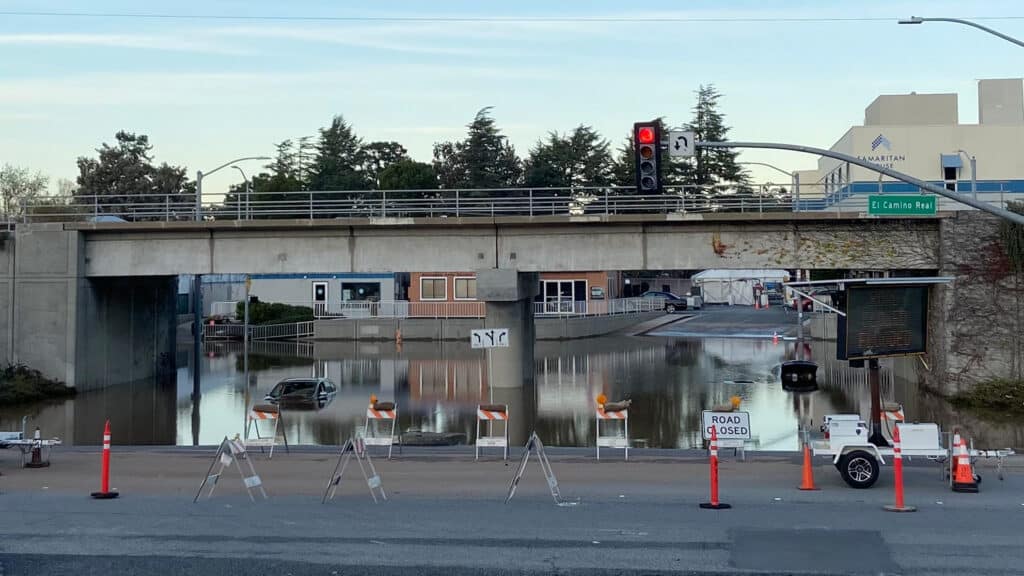
By Sidra Goldberg Pierson
Oakland’s City Council is meeting on Monday, June 10 to discuss adoption and revision of the Proposed City Budget. The current proposal is missing a key piece of funding to protect Oakland residents and the Bay: an evaluation of Oakland’s 400 miles of storm drains and pipes that carry polluted water to the Bay. We know this system is deteriorating, but no one knows just how bad it is.
This evaluation, the Storm Drainage Master Plan (SDMP), is a necessary investment in Oakland’s long-term resilience, sustainability, and Bay stewardship.
Here’s What You Need to Know and How You Can Take Action
Many parts of Oakland already experience seasonal flooding due to decades of underinvestment in the City’s stormwater infrastructure, and climate change only exacerbates these threats to Oakland residents. We see the consequences of ignored infrastructure in Oakland’s pot-holed and dangerous roads. Patchwork attempts to reduce damage to the storm drain system without a comprehensive plan will set the city up for increased community flooding, unmitigated pollution, pricey emergency repairs, and potential regulatory fines.
Funding for an update to the SDMP will provide a critical tool for the city to begin to address all these needs. A SDMP update will:
- Comply with the City’s own Resilient Oakland Playbook, which recommends this update: The Resilient Oakland Playbook, a tool for fostering climate and economic resilience in Oakland, identifies updating the SDMP as a key action step. It warns that the City’s storm drainage system is in critical need of maintenance, repairs, and upgrades. A key first step to identifying critical projects that will reduce potentially costly and dangerous flooding is to update to the SDMP.
- Provide needed knowledge and data to address stormwater pollution systematically: This will help to ensure that Oakland infrastructure is resilient the face of climate change, sea level rise, and flooding from large storms while reducing trash and pollution flowing into the Bay.
- Help the City to achieve trash clean-up goals: Oakland is required to achieve “100% trash capture from stormwater” by 2022 based on the Clean Water Act. If the City fails to do so, pollution will continue to run into the Bay, and Oakland could face fines that would further jeopardize efforts to achieve a clean and healthy Bay.
- Allow Oakland to access state funding for needed trash clean-up: In pursuing work to clean up trash in stormwater, Oakland has an opportunity to partner with the California Department of Transportation to achieve the requirements of the Clean Water Act. A cooperative trash clean-up plan could give the City access to much-needed state funding, making trash clean-up faster and cheaper.
You Can Make a Positive Impact for Oakland
You have the opportunity to influence Oakland’s two-year budget before it is finalized at the end of this month. Please take a few minutes to call or email members of the budget committee, whose contact information is listed below. We have provided a template that you can either copy and paste into an email or use as a script for a phone call.
| Council President Kaplan | atlarge@oaklandnet.com | 510-238-7008 |
| Council Member Fortunato Bas | district2@oaklandca.gov | 510-238-7002 |
| Council Member McElhaney | AMarqusee@oaklandnet.com | 510-238-7003 |
| Council Member Taylor | District6@oaklandca.gov | 510-238-7006 (press 5) |
| Council Member Thao | District4@Oaklandca.gov | 510-238-7004 |
Phone/ Email Script:
Hello, My name is ________, and I am an Oakland resident. I am calling (/emailing) to request that funding to update the Storm Drain Master Plan be included in the Oakland City Budget. Completion of a Storm Drain Master Plan will protect our community from flooding during large storm events, prepare the city to meet regulatory requirements, and allow Oakland to partner with Caltrans to achieve critical funds to clean up trash in our stormwater. Also, an update to the Storm Drain Master Plan is a key recommendation in our own Resilient Oakland Playbook, as it will reduce community flooding and pollution that harms public health, creeks, Lake Merritt, and the San Francisco Bay.


















































